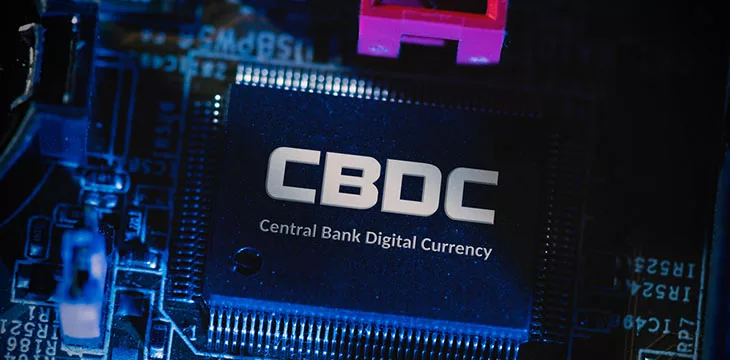|
Getting your Trinity Audio player ready...
|
The Society for Worldwide Interbank Financial Telecommunications (SWIFT) has launched a new beta test for central bank digital currency (CBDC) interoperability with three participating central banks.
SWIFT announced this week that the National Bank of Kazakhstan and the Hong Kong Monetary Authority (HKMA) are two of the participants in the test; the third central bank remains unknown.
SWIFT’s first CBDC interoperability beta test kicked off earlier this year with over a dozen participants, including BNP Paribas (NASDAQ: BNPQF), HSBC (NASDAQ: HSBC), the Monetary Authority of Singapore (MAS), and Banque de France. These participants conducted about 5,000 transactions between two blockchain networks to great success, SWIFT said at the time.
In the new beta test, the three central banks will integrate the solution with their own payment infrastructure for direct testing, it says.
SWIFT’s aim is to prevent the rise of digital payment islands as every other central bank launches its CBDC, Chief Innovation Officer Tom Zschach says.
“Our focus is on interoperability – ensuring that new digital currencies can seamlessly coexist with each other and with today’s fiat-based currencies and payment systems. This next phase of testing and exploration will help us further refine the solution to ensure it is as effective as possible, and at scale.”
SWIFT also announced the launch of the second phase of a sandbox whose participants are exploring new use cases for CBDCs. Central banks, commercial banks, and payment service providers in this sandbox are testing CBDC-enabled trigger-based payments for digital trading platforms, liquidity-saving mechanisms, delivery vs. payment and foreign exchange models.
This iteration of the sandbox has attracted over 30 participants, including the Reserve Bank of Australia (RBA), the Bank of Thailand, and the Deutsche Bundesbank. The first phase of the sandbox had attracted 18 participants.
The CBDC efforts by SWIFT are part of the messaging platform’s concerted efforts to stay ahead of what could be its biggest threat. After monopolizing international funds transfers for five decades, Swift could lose its role to CBDCs, which are cheaper, faster, and more efficient as cross-border payment options.
Its biggest threat is with countries such as Russia and China, which, for decades, have been seeking an alternative to the platform, which is by default allied to Western powers. The former has openly stated that its digital ruble could end the use of SWIFT in its financial market, while the latter is a global leader among major economies with its digital yuan.
To learn more about central bank digital currencies and some of the design decisions that need to be considered when creating and launching it, read nChain’s CBDC playbook.
CBDCs: The rules will apply, like it or not

 07-04-2025
07-04-2025 





